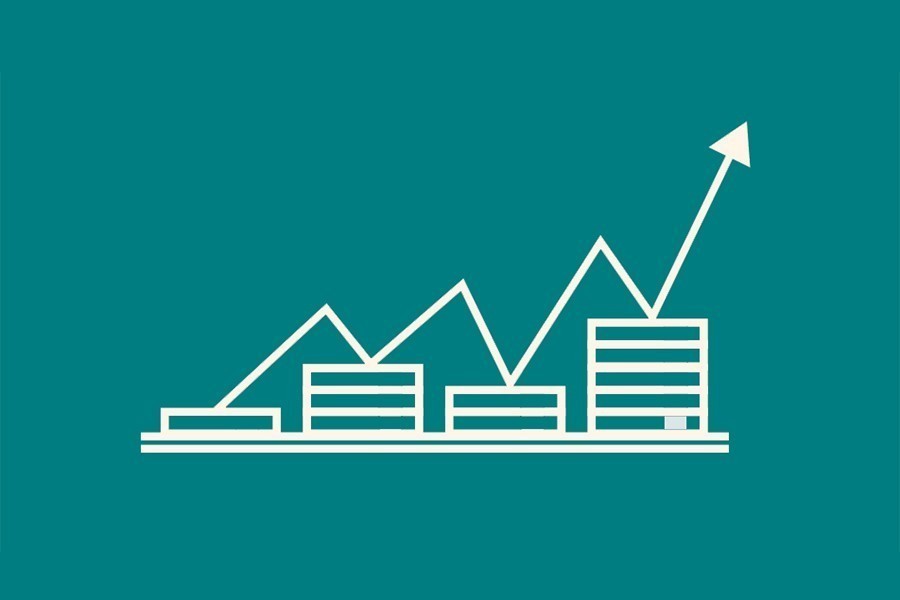The government is aiming to take up the economy's revenue-GDP ratio to 11.5 per cent by 2023-24 fiscal through modernisation of revenue administration, broadening the tax base, higher tax compliance, reform of laws and simplification of the process.
"This... is expected to significantly impact revenue mobilisation, and hence, over the medium term, the total revenue-GDP ratio is projected to increase at 11.5 per cent in 2023-24 fiscal," an official document stated.
The projection for 2022-23 fiscal is 11.3 per cent while the target for the current 2021-22 fiscal is 11.3 per cent, reports UNB.
It said that in recent years the government has taken several significant stringent measures to reinforce domestic resource mobilisation. Revenue income elasticity with respect to GDP is low in Bangladesh.
"The current revenue-GDP ratio is very low compared to the neighbouring and other developing countries," said the document.
It mentioned that to recover the economy from shocks of the COVID-19 pandemic, the government has maintained an expansionary fiscal policy stance. In the context of COVID-19, revenue earning has declined significantly.
On the other hand, higher spending due to the government's adoption of countercyclical measurers as responses to the economic impact of COVID-19 is creating budgetary pressure.
Several reform initiatives have been taken by the government to reinforce domestic resource mobilisation as well as to improve revenue-GDP ratio.
In this connection, the document stated that automation of the VAT collection and bonded warehousing system are ongoing. The enactment of the new Customs Act, 2020 is at the final stage.
In 2019-20 fiscal the revenue-GDP ratio was 9.5 per cent while the target for 2020-21 fiscal was 11.9 per cent, but it was revised to 11.4 per cent.
The document said that the fundamental objective of public expenditure policy is to enhance and improve the emergency healthcare facilities, stimulate both private and public investment, creating employment opportunities, expansion of social safety net programmes and ensure efficient redistribution of wealth through pro-poor inclusive development.
In addition, it said the government is pursuing to keep the budget deficit within the sustainable range so that the debt to GDP ratio does not increase at a higher pace.
"Due to outbreak of the pandemic, implementation of development projects has been slower, but the expenditure on social protection programmes and stimulus packages to address the COVID-19 crisis is rising substantially," the document added.
The size of public expenditure is historically low relative to GDP. It was only 14.9 per cent to GDP in FY20, while it stands at 17.5 per cent in the revised budget of FY21 from 17.9 per cent.
The document mentioned that public spending is targeted to be elevated to around 17 per cent of GDP over the medium term.
For the current FY22, it has been set at 17.5 per cent while for 2022-23 and 2023-34 fiscals it has been projected at 17 per cent.
As per the document, the government has already initiated public financial management (PFM) reforms. The PFM Reform Strategy 2016-21 along with other reform programmes have been implementing with a view to improving overall public service delivery, financial control of budget allocation, real-time monitoring of budget execution, and integration of recurrent and capital spending.
The PFM Action Plan 2018-23 has been prepared and implementation is going on.
Under the PFM reforms, the official document said, E-chalan system and a new budget and accounting system (Ibas++) have been introduced, new accounting BACS has been completed, and automation of national savings certificate sales has been introduced.
It also mentioned that the government to person (G2P) payment is being rolled out for social safety net programmes.
The document hoped that simplification of the fund release process, disbursement of government employees' salaries and pensions through electronic fund transfer (EFT) will increase the efficiency of expenditures.


